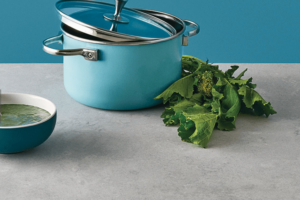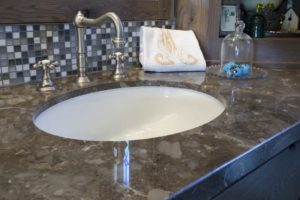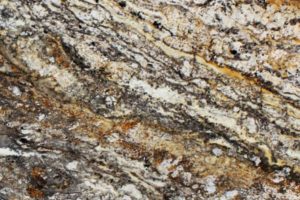We often highlight quartz countertops as being stain-resistant. Notice how fabricators and manufacturers say stain-resistant and not “stain-proof”. No countertop material is stain-proof, though quartz seemingly outdoes natural stone in the staining departments. This is because since quartz is non-porous, a quartz stain is different from a granite or marble stain.
Quartz Staining
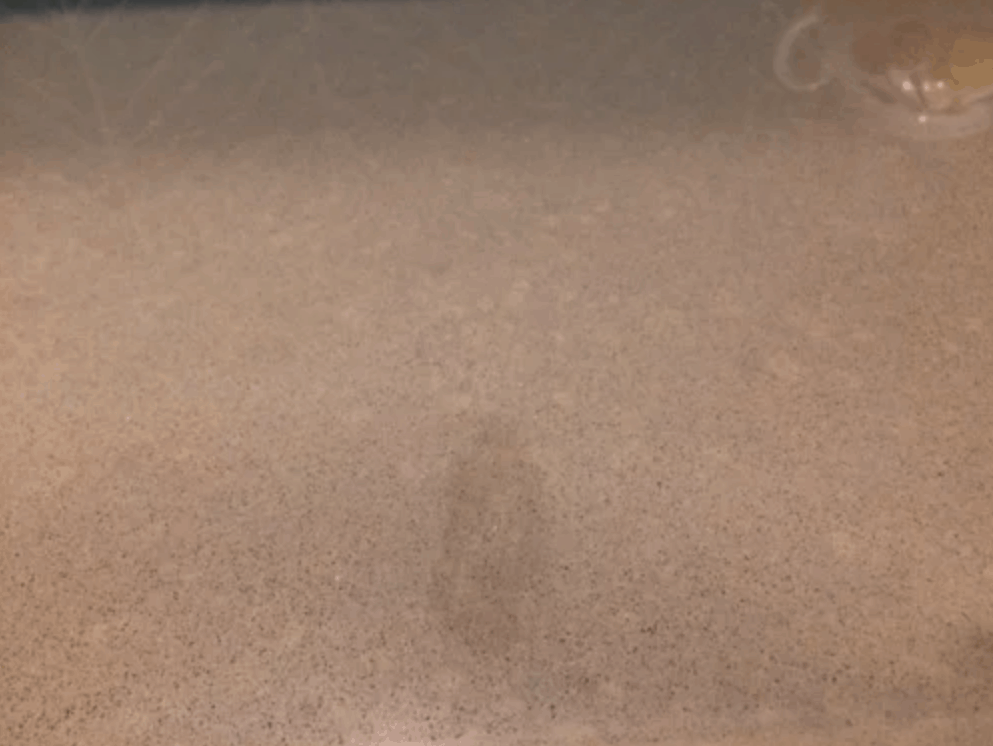
Being non-porous, a quartz stain doesn’t absorb as it does with natural stone. A traditional stain is caused by absorption. A stain on quartz can be due to a chemical reaction with the resin, food, drink, or sitting water. These show as either a light spot, appearing bleached, or a dark spot.
White or light colored quartz countertops are particularly vulnerable to dark stains from tea. Darker quartz is vulnerable to the “bleaching” affect.
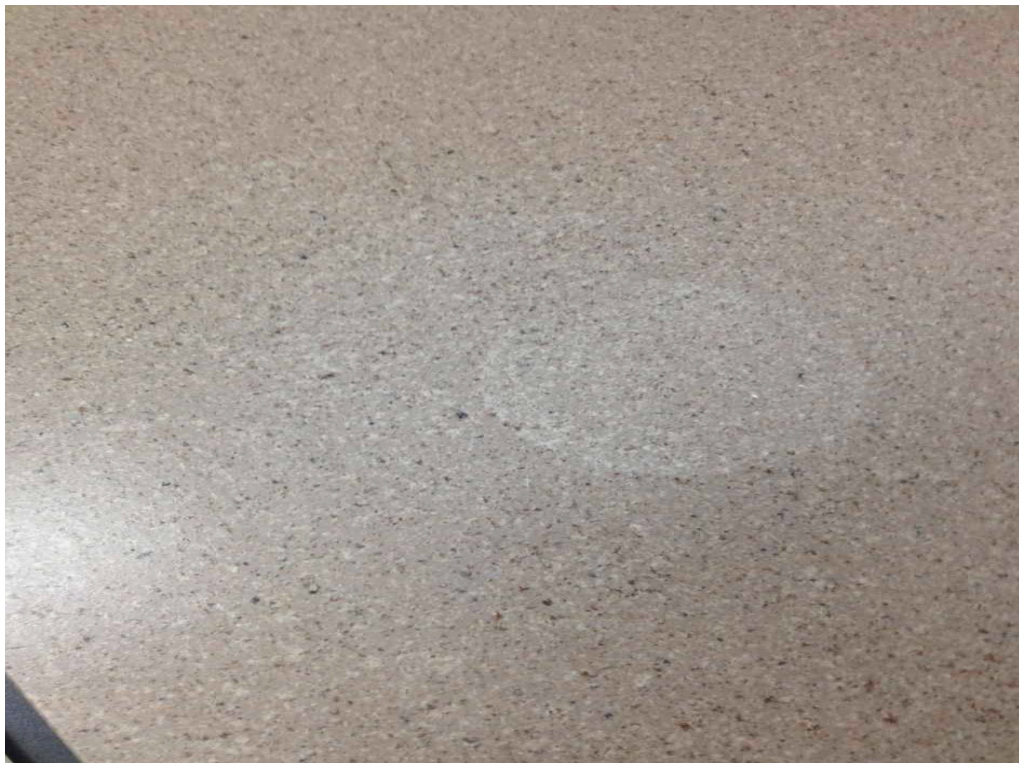
Stain Removal Options
The best news is, most of the time the stains are removable! A product called Bar Keepers Friend removes many stains when used with a non-abrasive pad. A Magic Eraser is a go-to for many homeowners though we recommend a spot test because it contains abrasives.
It is possible that the stain will be permanent – the methods above will often take away food or liquid stains but not chemical changes to the resin.
Avoiding Stains
Clean any standing liquid, food particles off immediately. Use cutting boards on fruits and veggies. Keep cleaners to a minimum.
It is best to use cleaning products made for granite, since quartz is typically 93% natural-stone minerals. Best practice is to avoid abrasive cleaners, and anything high in acidity.
Sealing isn’t effective on quartz since it is non-porous, if your quartz is mistakenly sealed we recommend removing the sealant.
The great thing about quartz is the goods outweigh the rare bads. With a little prior information, precautions, and care, quartz’s beauty will last a lifetime! If you are interested in adding quartz to your kitchen, contact us!



